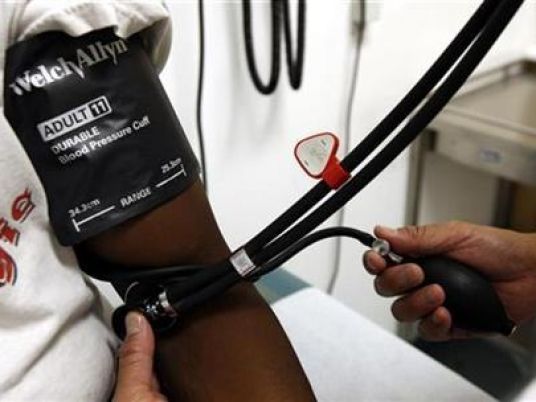
People who have slightly high blood pressure during their 20s are more likely to have signs of heart failure at age 50, according to a new study.
Even young adult blood pressure readings near the upper range of what’s considered normal were linked to weakness in the heart’s ability to pump blood in middle age, suggesting that preventing hypertension early could stave off heart failure, researchers say.
“Our findings provide further support for the importance of good risk factor control early in life,” said senior author Dr. Joao A.C. Lima of the cardiology division at Johns Hopkins University School of Medicine in Baltimore, Maryland.
“Many participants were not hypertensive at the beginning of the study; however, chronic exposure to higher blood pressure, even within what is considered the normal range, is associated with cardiac dysfunction 25 years later,” he said in a news release.
Beginning in 1985, the researchers began following 2,479 men and women between ages 18 and 30, assessing their blood pressure seven times over the next 25 years. They estimated “cumulative blood pressure exposure” by multiplying their systolic blood pressure (when the heart is contracting) and diastolic blood pressure (between beats) at each of the seven time points by the year in which they were measured.
Healthy adult blood pressure should be less than 120 millimeters of Mercury systolic over 80 mm Hg diastolic. High blood pressure is diagnosed at 140/90 mmHg or more.
At the end of the study the researchers used echocardiographs to observe the shape and function of the participants’ hearts. By age 50, 135 of the participants had left ventricle dysfunction, in which the heart was markedly weaker at pumping blood to the body, during beats or between beats.
Those who had higher blood pressure readings in their younger years, between 120/80 to 139/89 before age 30, were more likely to have left ventricular dysfunction between heartbeats than those with lower blood pressure, as reported in the Journal of the American College of Cardiology.
Diastolic blood pressure was more closely tied to diastolic dysfunction than was systolic blood pressure.
Other risk factors in childhood, like parental smoking, have also been associated with adult vascular disease, so blood pressure may be as well, said Dr. Thomas H. Marwick of the Menzies Institute for Medical Research at the University of Tasmania in Australia and author of an editorial comment accompanying the study.
Over time, high blood pressure in the arteries causes thickening and scarring which makes it harder for the heart to pump blood, and can lead to heart failure, he said.
But it is not clear how long a young person has to have elevated blood pressure to increase their risk of heart issues later, Marwick told Reuters Health by email.
About three percent of people younger than age 18 years have high blood pressure, including 30 percent of kids who are obese, he said. High blood pressure gets more common with older age, increasing to 65 percent of people over age 60.
“In children (high blood pressure) should elicit a careful hunt for secondary causes – especially kidney disease, endocrine and vascular problems,” Marwick said.
“Weight management, control of salt intake and physical activity are important lifestyle interventions that are important across the population,” to decrease the risk of elevated blood pressure, he said.




